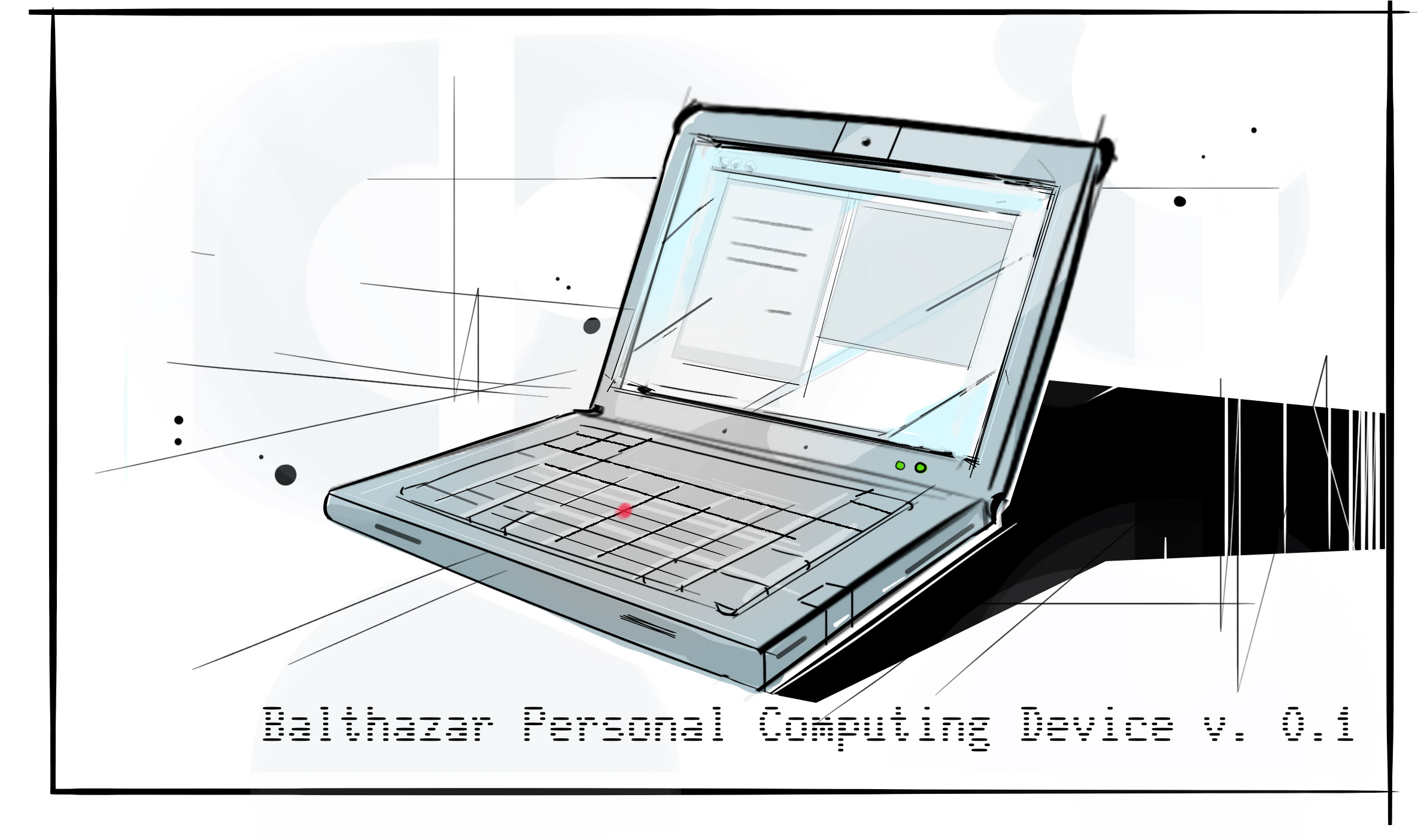Difference between revisions of "Balthazar"
| Line 22: | Line 22: | ||
Want to know more?<br> | Want to know more?<br> | ||
Please read the [[Goals|'''Goals''']], [[FAQ|'''Frequently asked questions''']] and the [[Specifications and features|'''Specifications and features''']]. | Please read the [[Goals|'''Goals''']], [[FAQ|'''Frequently asked questions''']] and the [[Specifications and features|'''Specifications and features''']]. | ||
| − | |||
| − | |||
| − | |||
| − | |||
| − | |||
| − | |||
| − | |||
| − | |||
| − | |||
Revision as of 22:05, 10 November 2019
a Personal Computing Device
One laptop for the new internet.
Secure, fast, inexpensive, open, robust, upgradeable and sustainable. All of that.
BPCD - Balthazar Personal Computing Device is a 13.3" upgradable and expandable laptop that is based on a few concepts inspired by EOMA68, but powered by RISC-V processor(s) open architecture that runs on Linux OS.
It contains all the hardware and continuously developing software and firmware features preventing data-theft and any unwanted 3rd party intrusion into the system by the default. Its default low-level security layer software based on LUKS , Libreswan and is also envisaged to be GNUnet ready.
While being versatile and robust it also follows OSHW, GNU-GPL, FOSS, EOMA, ISA and even CC guidelines.
What is all that FOSS and CC and OS..? → Glossary
Want to know more?
Please read the Goals, Frequently asked questions and the Specifications and features.
